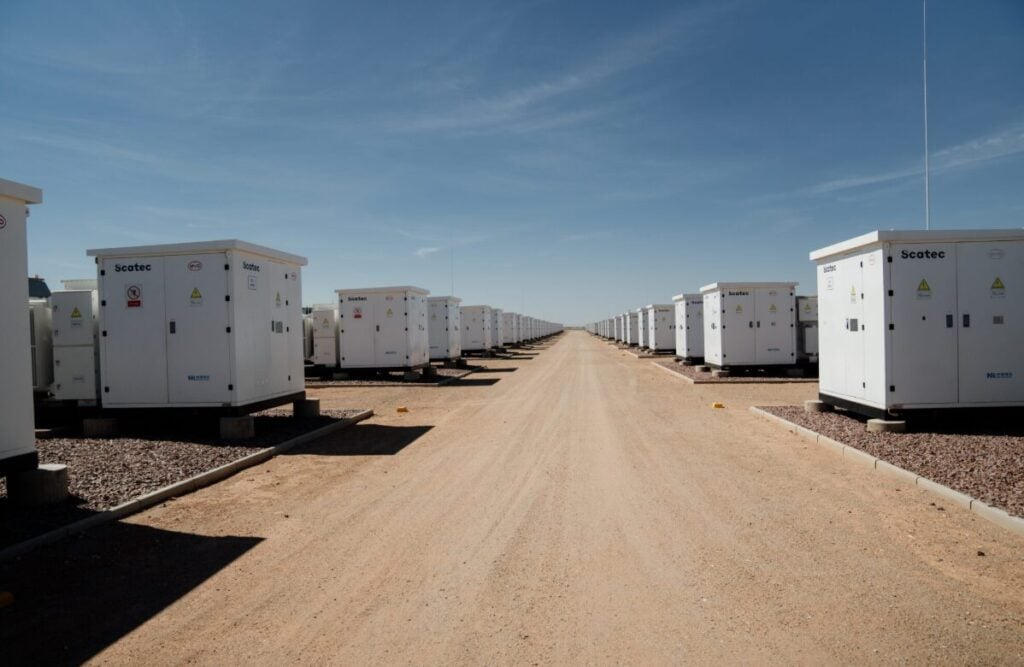
The government of South Africa has secured nearly 1.7GW/11GWh of grid-scale BESS capacity via various procurement programmes, though questions have been raised around their integrity and deliverability.
BESS to reduce blackouts, integrate renewables in South Africa
In an effort to increase penetration of renewable energy and reduce regular blackouts, the government and transmission system operator (TSO) Eskom have sought to procure large-scale battery energy storage system (BESS) capacity from private companies.
The main avenue has been the Battery Energy Storage Independent Power Producers Procurement Programme (BESIPPPP). Three bid windows, the most recent concluding in May, have seen around 1,744MW/6,976MWh procured in total. Winning projects receive a Net Dependable Capacity Payment per MW/hour and a Net Energy Payment per MW/h, and need to be online by 2027/28.
Eskom will use the projects’ capacity to balance and support the grid, predominantly via ancillary services like Instantaneous Reserves, Regulating Reserves, Ten Reserves and Supplemental Reserves.
Try Premium for just $1
- Full premium access for the first month at only $1
- Converts to an annual rate after 30 days unless cancelled
- Cancel anytime during the trial period
Premium Benefits
- Expert industry analysis and interviews
- Digital access to PV Tech Power journal
- Exclusive event discounts
Or get the full Premium subscription right away
Or continue reading this article for free
The Risk Mitigation Independent Power Producer Procurement Programme (RMIPPPP) meanwhile has procured capacity from pure renewables and hybrid renewables and storage projects, the latter totalling 600MW/2,545MWh of BESS capacity.
Controversy over schemes
Transmission system operator (TSO) Eskom has also sought to deploy directly-owned projects, totalling 343MW/1,440MWh. However, only one project from that has come online whereas most should have already, and no updates have been given. Much of the delays are due to Eskom’s financial problems, local reports say.
The opposition political party in South Africa, Mkhonto weSizwe (MK), called into question the integrity of the BESIPPPP procurements too, in May, with the Ministry of Electricity and Energy of South Africa having to defend them in response.
Overview of the procurements
See the overview of the capacity by programme below. All the following data comes from Eskom and the Department of Mineral Resources & Energy, which has run the BESIPPPP procurements. These do not include behind-the-meter (BTM) projects or those being built on a merchant basis, but they account for a minority of the capacity the country is set to deploy.
Only two of the projects procured in these schemes have come online, totalling 9.2% of the awarded capacity. They are Scatec’s 225MW/1,140MWh RMIPPPP-winning Kenhardt project and Eskom’s 20MW/100MWh project.
By capacity, a third of projects are now under construction having reached commercial close, 45.1% are awarded but have not yet reached commercial close, while the future of Eskom’s other own-and-operate projects, totalling 12% of the capacity, is unclear (as they should already be online).
Much of the procured capacity has gone to a large international independent power producers (IPP) like EDF, Scatec and ACWA Power. Local IPP Mulilo, majority-owned by Copenhagen Infrastructure Partners since 2023, has won the lion’s share of the Windows 2 and 3 of BESIPPP to become the largest overall winner by capacity. See an overview of projects, including their details, by IPP/owner below.
Lastly, see how the projects’ capacity break down by province below.
